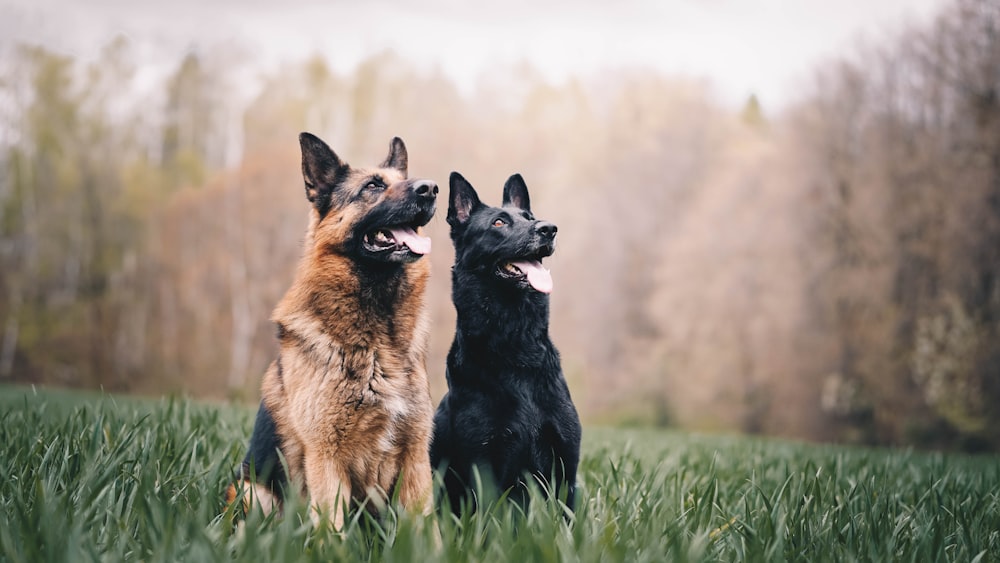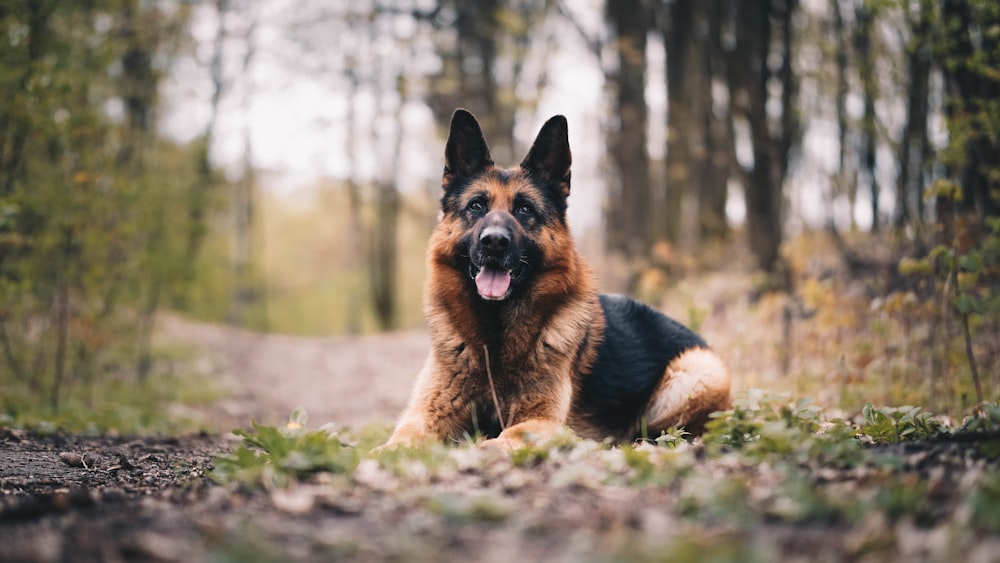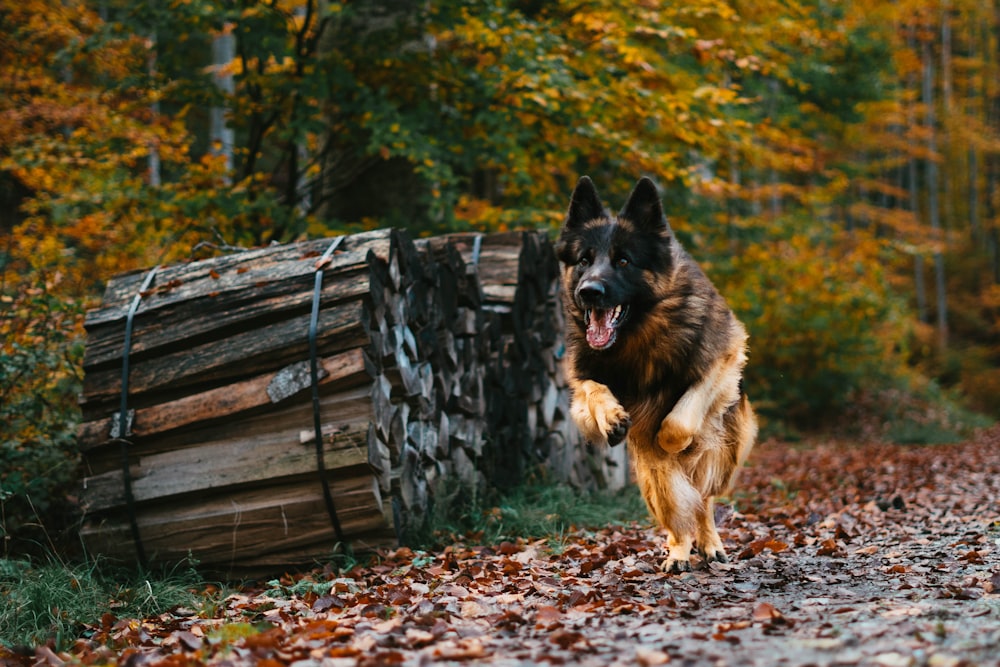Taking care of a German Shephard with our Guide
Large and athletic canines, German shepherds are clever, devoted, and loyal friends. They must be given careful attention and ongoing training if they are to live long and fulfilling lives. You must be taking care of them.
In addition to needing routine medical attention and exercise, German shepherds also need to be properly fed and housed. Your German shepherd can have a long and happy life with sufficient effort and care, and he or she will be a reliable friend to you for many years to come.
Proper nutrition: taking care of German Shephard
Image via Unsplash.com
It’s critical to provide German shepherds with a healthy diet throughout their entire lives because they are big, active dogs with hips that are prone to giving out. Make sure to purchase wholesome foods free of filler elements. For instance, make sure the food you are giving is of high quality, comprises animal protein, and does not contain maize as a source of protein.
You can provide dry food, wet food, or a combination of the two to your German shepherd.
It’s crucial to consult your veterinarian about the ingredients they should contain if you decide to feed your German shepherd homemade meals. The dog will benefit from a balanced diet thanks to this.
Age-appropriate food: taking care of German Shephard
Your dog’s nutritional requirements will change as it gets older. Give your dog food that is specifically formulated for its age, such as puppy food when it is very young, adult food when it is in its middle years, and senior food when it is in its senior years.
Additionally, there are particular formulae that you might need to take into account at some time, such as special diets for large breeds or weight-control formulas for overweight dogs.
Consult your veterinarian for advice on the best food for your dog. Your veterinarian may want your dog to receive specific nutritional needs because they are aware of its particular health difficulties.
Prepare an eating schedule
Image via Unsplash.com
The ideal practice is to break up your German shepherd’s daily food intake into two or more smaller meals. Giving smaller meals reduces the possibility of bloat, an abdominal swelling that can be fatal.
Your dog will need to go potty soon after each meal if you feed them numerous times a day.
Never work out a German shepherd shortly after a meal as this could cause bloating.
Healthy treats: taking care of German Shephard
Your German shepherd’s health might be impacted by the snacks you provide it in addition to providing it nutritious food. Select dog-pleasing low-calorie snacks, such as crunchy vegetables and kibble in a feeding toy that reduces the dog’s consumption.
You should limit the number of treats you offer your dog because they should only account for 5 to 10% of their daily calories.
Proper hydration
Image via Unsplash.com
Dogs can consume a large amount of water each day, and it is crucial that they do so to avoid dehydration. Every day, fill the bowl with fresh water and place it where your dog can access it. If you can, keep an eye on the bowl throughout the day to make sure there is always water in it.
But rather than consuming a lot of water at once, German shepherds should sip little amounts of water throughout the day. Making sure the dog drinks water gradually throughout the day will prevent bloating.
The health of your dog may be in danger from dehydration. Excessive panting, a decrease in appetite, and a dry nose or gums are indications that it may be dehydrated and requires extra water.
Regular check ups: taking care of German Shephard
Make careful to provide a German shepherd with preventative healthcare when taking care of it. Numerous health issues can be prevented and new issues can be treated rapidly if you have it examined by a veterinarian annually. Among the procedures your veterinarian may perform during an annual exam are:
An evaluation of your dog’s overall health will be performed by the veterinarian, who will also search for common conditions including ear infections.
Nail trimming: When your dog’s nails get too long, it hurts them to move. If they are too long, the veterinarian will trim them.
De-worming and heartworm screening are required for all dogs on a regular basis in order to keep them free of worms.
Spayed or neutered
Image via Unsplash.com
For the sake of maintaining pet population control, having your German shepherd fixed is crucial. Ask your vet when the ideal time is to spay or neuter your German shepherd if you don’t intend to breed the dog. The average age for this procedure is between 6 months and 1 1/2 years, while delaying until the dog is 1 year old may improve the health of its joints.
Additionally, neutering or spaying your dog can help prevent future violent behavior.
Treating medical problems: German Shephard care
Take your dog to the veterinarian, for instance, as soon as you see that it is having trouble walking or eating as usual. It’s crucial to watch for physical and behavioral changes in this breed of dog and to begin providing care as soon as possible because they are prone to developing joint issues as they age.
Keep an eye out for changes in your dog’s gait and leg movement in particular. These alterations may indicate that your dog has joint issues, such as hip dysplasia, which may call for urgent medical attention.
Bathing and brushing
It’s not too difficult to maintain a German shepherd’s coat. Once or twice a week should be sufficient. If you think they require it, bathe them. As soap can disturb their natural skin and fur oils, do not bathe it more frequently than a few times per month.
Both at-home and professional grooming are options for washing your dog.
In times of high activity, give your dog more frequent baths. In the summer especially, this will shield it from rashes and skin issues.
His own home: taking care of German Shephard
Image via Unsplash.com
Keep in mind that German shepherds are sizable dogs. This breed requires room to feel at home and in their yard. They function better in a residence with space to move around as opposed to a compact flat or confined area.
Having lots of area to go around is advantageous for German shepherds. Make sure your yard is tidy, clutter-free, and risk-free.
USEFUL LINKS:
See more about taking care of German Shephard
Check out some best pet food brands










One Comment on “Taking care of a German Shephard with our Guide ”